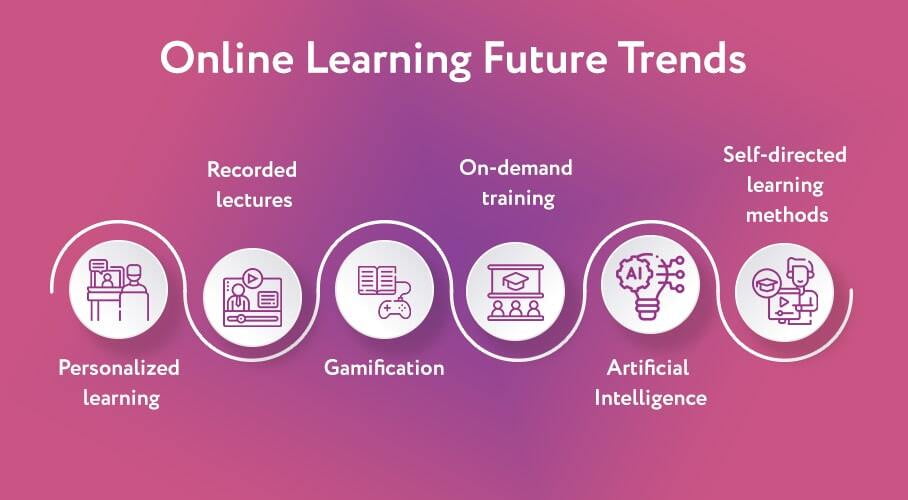
Let us understand the challenges of digital learning to overcome them so that we can move towards success.
• Poor infrastructure It is the major problem faced by the schools. Most schools do not have a proper infrastructure for distributing the eBooks or digital content. The availability of steady and fast internet connection are the major issues for schools.
• Lack of good content The growth of e-learning raises important questions about the quality of the content. It is not just to converting the books into digital formats but also create the new interactive and relevant content.
• Technological difficulties Most of students does not have the laptop or desktop computer. Many depend on their smartphones. The good connectivity and speed of the internet are also a big issue for those students whose are living in small cities and villages.
• Struggle to adopt The biggest impediment to technological change has never been technology itself, rather if has been the people affected by the changes. It can be unnerving for students who have only ever know traditional classroom. The challenge lies in trying to get them to digital ways of learning.
• Distraction Learner is easily distracted by the social media notification and messages.
The shift to online learning has presented several challenges for both teachers and students. One of the main difficulties faced by teachers is the inability to closely monitor their students to determine whether they are actively learning or using social media or other distractions. In a traditional classroom setting, teachers can easily observe students' body language, engagement, and participation to gauge their understanding and attention. However, in an online class, it is more challenging to assess students' engagement and ensure that they are focused on the lesson.
Another challenge is the issue of low motivation among students. Not everyone is able to give their 100% in an e-learning environment, whether due to distractions, busyness, or simply lack of motivation. Unlike in a physical classroom where there is a structured environment and direct interaction with the teacher and peers, online learning can feel more abstract and disconnected, leading to a decrease in motivation, especially if students have already spent the day doing other work or activities.
To address these challenges, teachers can implement strategies to increase engagement and motivation in online learning. This can include incorporating interactive elements into lessons, such as quizzes, polls, and discussions, to keep students actively engaged. Teachers can also provide regular feedback and encouragement to students to help them stay motivated and focused on their learning goals.
Creating a sense of community and collaboration among students can help increase motivation and engagement. This can be done through group projects, virtual study groups, or online forums where students can interact with their peers and share ideas and insights.
While online learning presents its challenges, it also offers opportunities for creativity and innovation in teaching and learning. By addressing these challenges and implementing effective strategies, teachers can help ensure that students remain engaged, motivated, and successful in their online learning experiences.
FUTURE TRENDS OF DIGITAL LEARNING
• Mlearning In simple words, m learning is learning the content by using the mobile device. The most common way of using m learning is you create the learning material and share it through the email or by sharing the link by text messages.
• Micro learning Micro learning is the short and small videos, blog, audio clip or any things which provides the quick information to the learner but the micro learning is less effective to provide the complex information.
• Game based learning Game based learning is the learning that occurs while playing a game. It is the best solution for learning the soft skills. Game based learning gives learners the opportunity to practice complex skills like decision making.
• Augmented reality Augmented reality is the merger of physical environment and computer generated virtual environment to produce a new visualisation. The augmented reality offers the opportunity to practice high risk training, medical training and 3D learning which are required the complex setup in a safe environment.
• Artificial intelligence Artificial intelligence in digital learning provides the opportunity to develop more personalized learning experience. One of the main features of AI is chat bot which is answering the learner’s questions and suggesting them to other learning materials.
CONCLUSION
This has reviewed the challenges and future trends of digital learning. Nowadays, online education is gaining increased acceptance, with most colleges and universities running online classes. However, the heavy use of technology in education has also raised concerns about privacy.
One of the main challenges of digital learning is ensuring the privacy and security of student data. With the increasing use of online platforms and tools for education, there is a risk of sensitive student information being exposed or misused. This has led to calls for stronger data protection measures and regulations to safeguard student privacy.
The digital divide, where students from disadvantaged backgrounds may not have access to the necessary technology or internet connection to participate in online learning. This highlights the importance of ensuring equitable access to technology and connectivity for all students, regardless of their socio-economic background. Despite these challenges, the future of digital learning looks promising, with continued advancements in technology and pedagogy. Virtual reality (VR) and augmented reality (AR) are expected to play a greater role in education, providing immersive learning experiences that can enhance student engagement and understanding.
Artificial intelligence (AI) and machine learning (ML) are expected to revolutionize education by personalizing learning experiences, providing real-time feedback, and identifying areas where students may need additional support.
Overall, while there are challenges to overcome, the future of digital learning holds great potential for transforming education and providing more accessible and effective learning experiences for students around the world.
